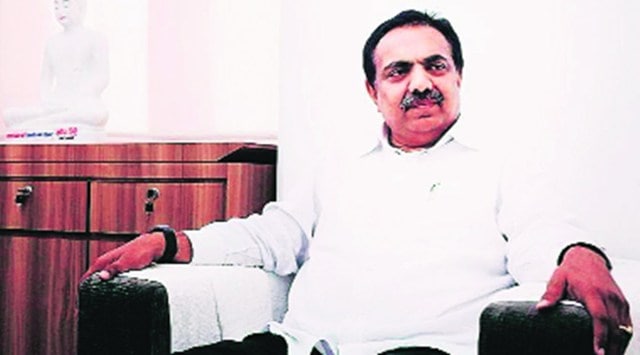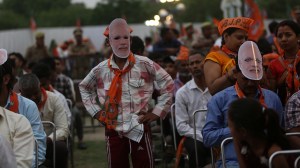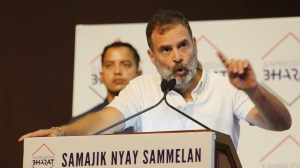- India
- International
‘No friction in alliance, things in politics as in life take some time to settle’: Jayant Patil
There is no friction in the alliance. Things in politics as in life take some time to settle. In the early days, it took us some time to understand each other but it has been a smooth ride. There is homogeneity in our relationship and no differences on issues.
 Jayant Patil, Water Resources Minister, Maharashtra.
Jayant Patil, Water Resources Minister, Maharashtra.State NCP president and Maharashtra’s Water Resources Minister Jayant Patil speaks to The Indian Express about his government’s handling of the Kangana Ranaut issue, the friction between coalition partners of the Maha Vikas Aghadi government and his party chief Sharad Pawar’s promise to inquire into errant police officers who had framed social activists during the previous BJP-led regime.
Has the Kangana Ranaut episode and its handling by the Shiv Sena hurt the image of the Maha Vikas Aghadi government?
I don’t think so. The people of Maharashtra look at this Kangana Ranaut episode as entertainment. It has no value beyond that. The people of Maharashtra think that all this is going on for Bihar elections. There is nothing beyond that to this issue. Our party president Sharad Pawar has given his considered views on this subject and they are not different from mine.
Is there any friction in the alliance over the handling of this issue?
There is no friction in the alliance. Things in politics as in life take some time to settle. In the early days, it took us some time to understand each other but it has been a smooth ride. There is homogeneity in our relationship and no differences on issues.

Five months into the lockdown, the number of Covid-19 cases has started rising again. Has the government fallen short in controlling this crisis?
The government has not fallen short. What has happened is that large migration has taken the virus to almost every possible district. The only way of stopping the spread was to have a complete lockdown, which is not acceptable to a large section of the population. The way the national lockdown was planned has also played a role in this spread of the virus. People were forced to huddle down in small places where they eventually contracted the virus and when they moved after the lockdown was eased, they acted as carriers for spreading the virus in rural areas. The best possible way of curtailing the spread was to inform people a week or 10 days in advance that a lockdown was coming. This would have given people enough time to reach their homes and prepare for the crisis. This would have curtailed the spread a little.
Your home district of Sangli has also seen a substantial spike of late. Its recovery rate at 57 per cent is also substantially lesser than the state’s average. What has gone wrong?
The spike is the result of the fact that many people from Mumbai and Pune have come to Sangli after the inter-district travel restrictions were removed. Chief Minister Uddhav Thackeray was insistent that people should not be allowed to migrate. However, as the country slowly opened up and various states announced travel relaxations, there was immense pressure from people as well as ministers in the Cabinet to open up. That could be instrumental in the increasing numbers. On Sangli’s poor recovery rate, the problem was that it was taking a lot of time for people from the periphery of the district to search Sangli for treatment. We have, however, now created beds with adequate oxygen supply even at talukas and its impact should start showing now.
When do you think the situation will stabilise in the state?
It will take at least two to three months for us to bring down the infection numbers really low. There has to be public participation and we have already started seeing it, as in a lot of cities, including Sangli, local residents have voluntarily started adopting Janata curfew.
The state’s economy is in shambles. You’ve been a finance minister. What is your prescription for a revival?
Till August end, the total revenue shortfall in the state stood at Rs 61,000 crore for the current year. This is a huge shock and the state has been forced to borrow to pay salaries. My belief is that all stakeholders should take a proportionate hit during the crisis. At one hand, we have industries talking about a stimulus package while at the other hand, we have demands that cash doles need to be given to the poor. But I believe that small doles do not provide the needed stimulus to put the economy back on track. What is needed is large capital infusion. However, it is a time of balancing and the state will have to prioritise its spending and select sectors on which it wants to focus the most.
What is your vision for the party and where do you see it in the next Assembly elections?
As of now, I am not happy with the number of seats we got in the 2019 elections. We were expecting 62 seats but got 54. A number of seats were lost by a low margin. I personally would be satisfied if we take our tally to 75 to 80 seats. We hope that by the next Assembly elections, our strength will increase. Moreover, a number of leaders who have quit the NCP over the last few years are now wanting to come back and that too will have a bearing on our numbers.
NCP is deemed to be the potential ally for BJP in the state. How do you react to this?
If you see our record on the floor of the Assembly or our leaders’ speeches, you will realise that we are a party that has been the most vocal in taking on BJP when it was in power. There is no chance of us ever siding or going along with BJP. We have fundamental differences of principles and ideologies.
Your plans of expanding your electoral footprint puts you in direct confrontation with your allies. Already, there is dissonance at local level that saw Shiv Sena MP Sanjay Jadhav threatening to resign due to NCP’s interference. How will you balance this out?
In Parbhani, there was always a tussle between NCP and Sena. These incidences are bound to take place but we have a mechanism where we can sort out these issues. It is a political reality that the parties have had their differences and in certain districts, our members don’t even like seeing the faces of their subordinates from the allies. As I said, a mechanism is in place to sort out these issues. Both me and the CM will be meeting with the people in Parbhani to sort out the issue amicably.
Even within the government, there have been differences between the allies. How is that being handled?
All three parties have different strengths. Looking at our numbers, all of us know where we stand. It was based on these numbers that the alliance was determined. Yes, there have been issues in the government – say about issues like distribution of work and finances for projects. However, things are settling down now and you will see that such conflicts will reduce in the coming future.
Right after the MVA came to power, Sharad Pawar made statements on how the previous government had used the police machinery to frame activists. Announcements were made about the state inquiring into the roles of such police officers and taking action. It has been over nine months, has any action or inquiry been initiated?
Unlike BJP, ours is not a vindictive government. We will not take action against people who have committed an honest mistake in their line of duty. However, if any officer has seriously erred, it will not be tolerated. You will see the impact of what we had promised in the coming days.
Maratha reservation has been stayed by Supreme Court. Has the state faltered in putting up a strong defence?
The same set of lawyers who had been deployed during the BJP government have been representing us. Every possible resource has been made available to them. What has happened is therefore very surprising to us.
We have recently seen NCP’s Parth Pawar airing divergent views in the public. Is the NCP staring at a war of succession in the Pawar family?
The Pawars are a mature family and know what needs to be done and what is to be avoided. There is homogeneity and understanding in the family. They sit together and resolve their issues. There are no problems in the family.
The water resources department that you helm is highly capital intensive. How do you plan to raise money for new projects?
We are hopeful that all government assisted projects that get funded through NABARD will continue. The issue is how to raise money for meeting the state’s contribution to these projects. We are trying to raise money from outside, including the possibility of borrowing money through our irrigation corporations. As of now, the finance department has not agreed to this proposal and in lieu of the current situation, we do not want to push them. We are in a position where we can manage this year. However, for the future, we are talking to financial institutions.
Your department has managed to control flooding situation in Kolhapur, Sangli and Satara this time around despite heavy rains like last time. How?
Advance preparations and better coordination with Karnataka over releasing water from the Almatti dam helped in preventing floods. We approached the villages in time and there was careful monitoring of the water discharge. These measures played a role.
Apr 24: Latest News
- 01
- 02
- 03
- 04
- 05







































